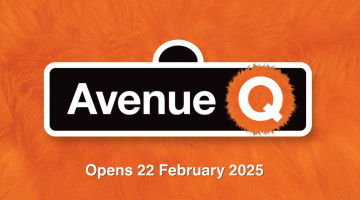
By Kate Histon
Eisteddfods & competitions can be an amazingly heart-warming experience seeing our children up on stage under those lights being their brilliant selves. It can also be one of disappointment and potential heartbreak. Having run my own school for over 15 years, and being a mother of an eisteddfod goer and coaching groups and soloists for competitions, I know all about eisteddfods from the perspective of being a student, being a daughter of a dance mum, being a teacher and a parent, the happy times and the sad times.
A huge element of eisteddfods is the mother-daughter relationship and will be before and after the dance. The way we as mothers filter the world of competition to our children will affect the way they see themselves in relation to the world for life. I know that as a parent it can be frustrating when you see your child not perform to their best when they have demonstrated countless times how well they can dance. On the other hand it is also very moving when you see your children shine and perform their best on stage. Your reaction and communication to your child after and before their performance is important to be aware of. Playing a positive supportive role for your child in competition work is essential.
It’s great to win, we all want to, but only one person will every time; that does not mean that the rest are not worthy, talented dancers. Developing a healthy competitive drive in our children is important. As much as they want to place, they also need to learn how to manage emotions when they don’t. This is where parents can help. This journey is about their development long term, not about short term results.
There will always be an ebb and flow in progress and in their life of dance.
Here are some tips that I would recommend using to help manage emotions in competitive dancing:
Do Not
• Try not to focus solely on winning or placing– the goal of any performer should be to simply perform to their best and to measure themselves in comparison to their last performance. Comparing your child to other performers is only useful to ensure your child is up to that standard. However, conversations with your child should be more about enjoying the performance, reinforcing the specific corrections that their teacher has given and simply performing to their best.
• Avoid teaching your child. Leave this to the teachers. Believe me! Your teacher knows what they are talking about and what your child is capable of. If you have any suggestions or questions by all means raise them with your teacher. Your child needs you to be their loving supporter (not their teacher).
• Do not compare your child to their peers. They will do that enough for themselves. If your child discusses their friends ability, shift focus by encouraging your child to focus on their own strengths and weaknesses and teachers corrections. Not on their friends journey of dance.
Do
• Encourage and expect your child to practise regularly at home. Dance is also a financial investment for you and if they are an eisteddfod student they should want to practise at home to better themselves and perfect their routines. If they lack the motivation, then really, they should not be attempting to dance at competition level. Help your child create a home practise roster and like their school work, make them accountable by ensuring they stick to it.
• Be honest with your child in a constructive non emotional way. You will learn more about dance and technique by becoming an eisteddfod mum (attending comps), so by all means give your feedback but please refrain from overstepping your role and relationship with your child in relation to dancing. It is never worth it and can be damaging in the long run.
• If your teachers cannot make it to watch your child perform always let them know how your child danced after. We teachers want to know how your child danced more so than how they placed. We are focused on the long term development, not the short term.
Helping your child become a responsible performer
After your child dances the first thing they are going to want to do is ask you how they went. Before you reply I want you to firstly ask your child how they think they went and how they feel. It is important that they self-assess before they see their competitors and before they see your face. Please work with them in developing this process as a lifelong habit – self assess as objectively as possible after they get off stage and before they see your face. They should be able to answer the following;
- Where did I feel strong?
- Where did I feel not so strong?
- Where did I excel?
- Where could I have done better?
- What mark out of 10 do I give myself?
After they tell you how they felt and how they think they went in comparison to their last performance, then you can give them feedback on how they looked. Keep your feedback constructive, light and positive. Always remember that your long term relationship with your child is more important than an isolated measurement of their performance.
Eisteddfods & competitions can be an empowering experience. It’s all in your perception and approach. Have fun, work hard remember why we dance in the first place… for the love of it!

About Kate Histon
Kate is the owner and director of Byron Dance Dynamics; a school located in Byron Bay Australia with its unique flare and holistic approach of developing dancers from the inside out. Kate has over two decades experience in the dance industry, and over 15years experience as a successful dance school owner and teacher. As such, she is uniquely placed to appreciate the demands of dancers training at an athletic level and the impact this has on their families. She is committed to helping dancers, performers and teachers make the most of their talents and opportunities, challenge self-limiting thoughts and behaviours and replace them with strength and confidence.
Kate is a certified cognitive behaviour facilitator of the Demartini Method and an NLP Neuro Semantics practitioner. Basically that means she knows how to help people change the way they think so they are able to conquer their fears, reassess their strengths, apply strategy and push themselves to greater heights.
Kate’s experience in the field is well recognised. She has worked throughout Australia and New Zealand as a senior facilitator with the Demartini Institute, Global One Training and Pushworth Entertainment Agency and her work on Communication Excellence has been incorporated into the curriculum at the Bristol College Massachusetts USA. Kate is also a regular contributor to DanceLife Australia.
Kate is a registered teacher with the Royal Academy of Dance. Her commitment to dance and to her students has seen several of them go onto achieve success in their own careers.










Marie Walton-Mahon says:
Excellent advice by Kate Histon, well written!!!!
Congratulations
Benita Whalley says:
A extremely well written article with good advice for all three involved, the student, parent and the teacher.
Congratulations Kate Histon.